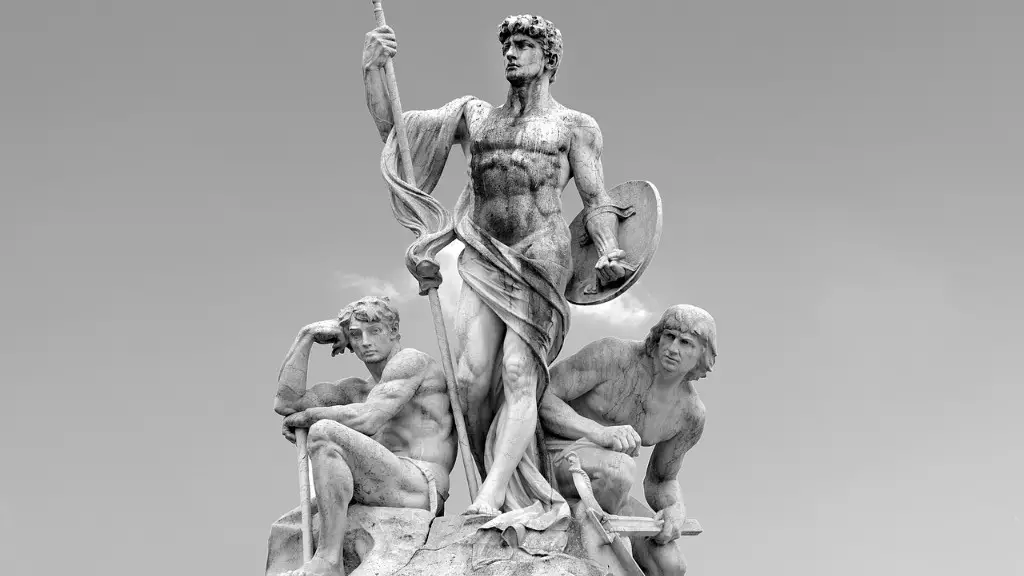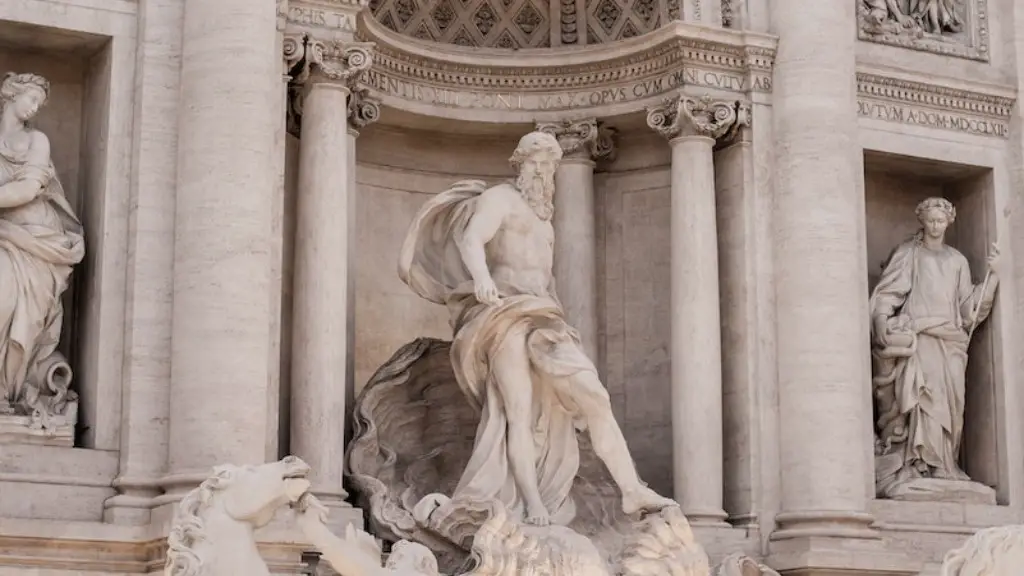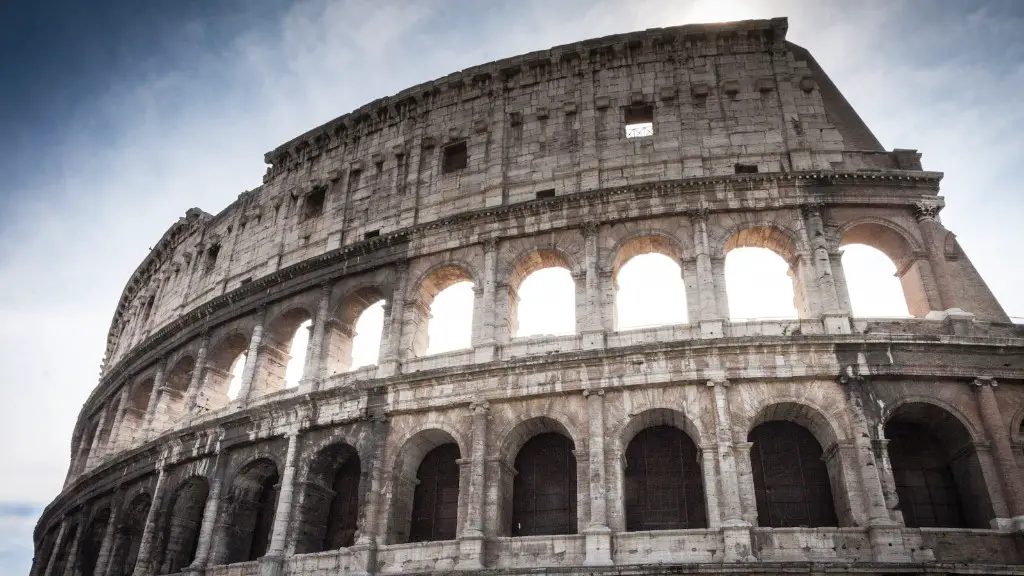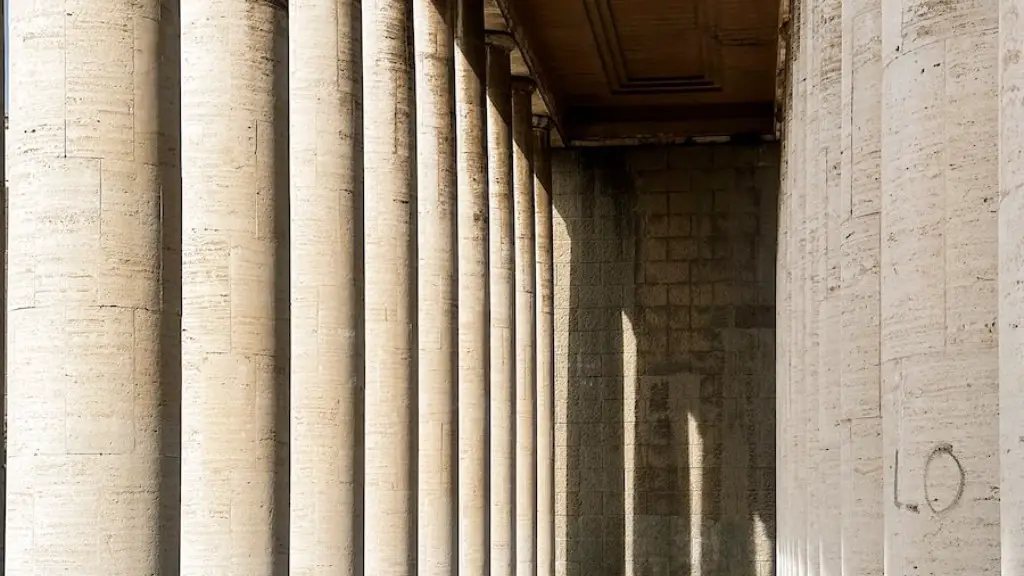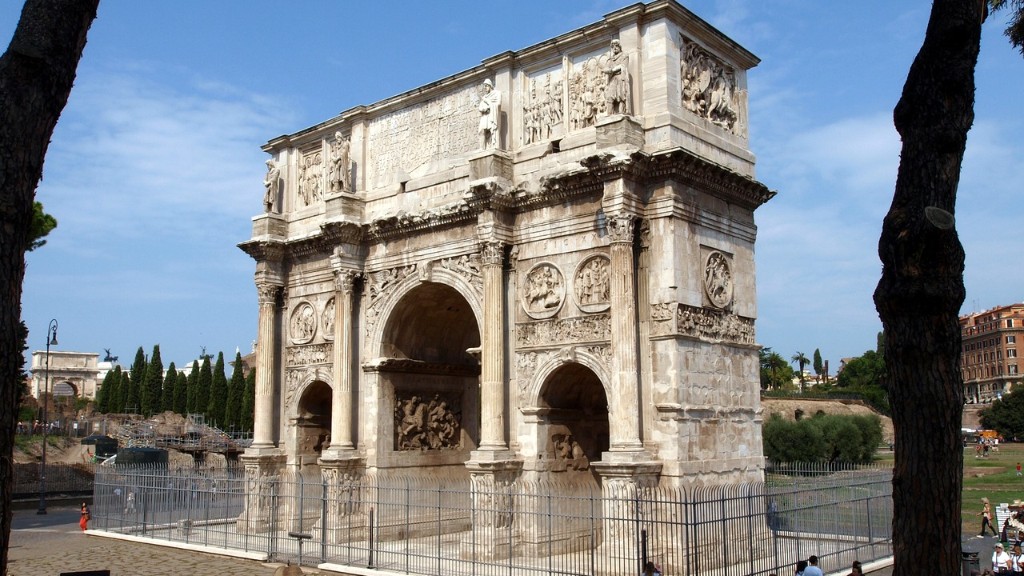History
Ancient Rome has been immortalised in literature and the arts since its inception in 753 BC. It was one of the greatest civilisations of the ancient world, and was renowned for its law, order, grand public monuments and military might. Though its concrete walls, which still stand today in parts, are a reminder of the many great accomplishments made by the Romans, the fact remains that Rome is often viewed in a positive light owing to its strong cultural and historical legacy.
The early Roman Republic was based on a number of principles such as democracy, rule of law and freedom of speech. This period saw expansion of Roman territories and the introduction of Roman religion, arts and architecture. The foundation of the Colosseum in the heart of the city was a key driver of the culture of ancient Rome. It provided a platform for entertainment and a unifying medium where people from all parts of the Empire could come together as citizens and share a common identity.
Rome’s infrastructure was well ahead of its time compared to many other civilisations. One of the most impressive feats in Roman engineering was the development of roads and bridges linking cities, towns and villages. The Romans were also renowned for their civic engineering such as aqueducts, public baths and public toilets. This gave them clear advantages in terms of governance and well-being.
However, one cannot ignore the dark side of the Roman Empire. In its patriarchal and male dominated society, men dominated women and views on slavery were at odds with contemporary values. The aristocracy held power over the common people and there was a strict hierarchy. Additionally, even during its own time Rome was embroiled in numerous civil wars, which led to its fall.
Legacy
Despite this, it would be a fallacy to completely disregard Rome’s impressive legacy. Rome’s influence still exists today in legal systems, political systems, architecture, literature and art. Its legacy served as the backbone of Western Civilization, paving the way for the foundation of modern European culture.
One of the most impressive aspects of Rome’s legacy is its legal system. The Roman legal system was responsible for one of the most influential legal documents in world history: the Justinian’s Code. This code was instrumental in forming much of European law, and is still applied in many parts of the world today.
The Roman political system also had an impact on today’s society. The Senate and the electoral system were seen as the basis for the American government. The American founding fathers found inspiration from the Roman Republic, when drafting the Constitution of the United States.
The Empire is also renowned for its architecture. Coliseum, the Flavian Amphitheatre, remains one of the most iconic structures from ancient Rome. Many structures from Ancient Rome continue to inspire modern architecture and are a source of admiration and fascination to this day.
The influence of Ancient Rome on the literary world has been monumental. Roman authors have shaped English and Western literature for centuries. The works of Virgil, Horace and Ovid are still to be appreciated and studied. Additionally, classical Roman sculpture and paintings still captivate the modern public.
Influence
Overall, it is no surprise that Rome is viewed in a positive light. The wealth and grandeur of its monuments, the strength and longevity of its legal system, the continuity of its literature and art are sources of admiration, awe and fascination. Such cultural and historical layers of meaning are understood in both the contemporary and ancient contexts; they are what give Rome much of its enduring appeal.
Apart from its direct influence on subsequent civilisations, Roman culture has also influenced contemporary thinking in countless ways. Roman mythology was so pervasive that it spread far beyond the boundaries of the Empire. It is still seen today in many aspects of everyday life, from religion to holidays, from literature to cryptozoology.
At its core, a large part of the admiration for ancient Rome and its culture is due to its artistic and aesthetic value. Ancient Rome’s monuments and sculptures are still regarded as some of the greatest works of art of all time, and this is reflected in the way that we remember Rome today.
Equally impressive are the mosaic floors and detailed paintings found in the villas and palaces of Rome. Here, one can understand why the art of Roman civilisation was so highly regarded, even in its own time. Indeed, this is part of the reason why Ancient Rome continues to be seen in a positive light today.
Significance
It is clear then, that the legacy of ancient Rome is still pervasive today. From its notable legal system to its impressive literature, art and architecture, it has left an indelible mark that resonates with the modern world. Its philosophy of justice, freedom and democracy has been a source of inspiration for many, and its legacy continues to influence our culture, our politics, and our lives.
The immortalisation of Ancient Rome allows us to look back at the greatness of our ancestors, to understand their values and to appreciate their grand accomplishments. It is our connection to the past and a way for us to understand the path that led us here today.
In conclusion, Ancient Rome is viewed positively because of its significant cultural, historical and aesthetic legacy that has been passed down to us through literature, art, architecture and civic engineering. The Roman Empire set a cultural and legal example that spread across the Mediterranean region and continues to be an inspiration to this day.
Public Opinion
Though there is substantial historical and cultural evidence that Roman culture and accomplishments has had an enduring influence on subsequent civilisations, modern day public opinion about Rome is far from unified. From those that are sceptical of the Roman legacy to those that are in awe of the Empire, it is difficult to come to terms with the fact that such a great civilisation fell.
Some might argue that Rome has been over glorified due to centuries of romanticisation in literature and art. Indeed, there are still some who remain critical of its legacy, considering the atrocities of its slave system and oppressive patriarchy. However, if one is to view Rome objectively, it is easy to appreciate the complexity of its story and the significance of its legacy.
When it comes to discussing public opinion, it is also important to consider other artists and writers. In recent decades, there has been a renewed fascination with the classical world, leading to the rise in popularity of books, shows and films that explore the city of Rome and its culture.
From contemporary news articles to debates in academia, there is no doubt that Ancient Rome has been the subject of much public discourse. When engaging in this discourse, it is important for one remember not to take any position for granted, but instead to understand and appreciate the significance of Rome’s influence on modern day civilisation.
Political Impact
Due to the lasting cultural and political influence of Ancient Rome, it is no surprise that its legacy has an integral role in today’s political landscape. The ideas of law and order, democracy and justice that originated with the Roman Empire form the basis of many governments and constitutions across the world.
Additionally, many of the modern day concepts of nationhood and imperialism can be traced back to the Roman Empire. Rome’s history of expansion and consolidation of power is reflected in the foreign policy of many modern nations and the geopolitical landscape of Europe. In many respects, it can be said that the basics of international relations and diplomacy were set by the Romans.
Finally, it is impossible to ignore the direct influence of Ancient Rome’s legacy on some of the world’s most influential organisations, such as the European Union. The EU has actively sought to emulate the Roman’s accomplishments, in order to create a unified continent with a shared history and common values.
Ultimately, it is clear that Ancient Rome still has a direct effect on today’s political landscape. Even though it is often seen in a positive light, its influence remains complex, controversial and ever-changing.
Conclusion
From this analysis, it can be seen that why we view Ancient Rome so positively is due to its significant cultural, historical and aesthetic legacy that has been passed down to us through literature, art, architecture and civic engineering. Ancient Rome has been immortalised in literature and art, and is admired for its grand monuments, its law, order, and its impact on European culture.
The legacy of Rome is still pervasive today and its philosophy of justice, freedom and democracy still influences our culture and politics. Its legacy of nationhood, imperialism and international relations continues to be an inspiration to this day. Despite the controversial aspects of its history, Ancient Rome is viewed positively due to the complex and fascinating web of cultural, political and aesthetic elements that continue to influence and shape modern day society.

